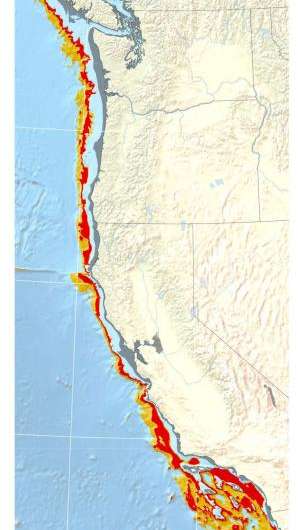Smothered oceans: Extreme oxygen loss in oceans accompanied past global climate change

Seafloor sediment cores reveal abrupt, extensive loss of oxygen in the ocean when ice sheets melted roughly 10,000-17,000 years ago,according to a study from the University of California, Davis. Thefindings provide insight into similar changes observed in the ocean today.
In the study, published in the journal PLOS ONE, researchers analyzed marine sediment cores from different world regions to document the extent to which low oxygen zones in the ocean have expanded in the past, due to climate change.
From the subarctic Pacific to the Chilean margins, they foundevidence of extreme oxygen loss stretching from the upper ocean to about 3,000 meters deep. In some oceanic regions, such loss took place over a time period of 100 years or less.
"This is a global story that knits these regions together and showsthat when you warm the planet rapidly, whole ocean basins can lose oxygen very abruptly and very extensively," said lead author Sarah Moffitt, a postdoctoral scholar with the UC Davis Bodega Marine Laboratory and formerly a Ph.D. student with the Graduate Group in Ecology.
Marine organisms, from salmon and sardines to crab and oysters,depend on oxygen to exist. Adapting to an ocean environment withrapidly dropping oxygen levels would require a major reorganization of living things and their habitats, much as today polar species on land are retreating to higher, cooler latitudes.
The researchers chose the deglaciation period because it was a time of rising global temperatures, atmospheric carbon dioxide and sea levels—many of the global climate change signs the Earth isexperiencing now.
"Our modern ocean is moving into a state that has no precedent inhuman history," Moffitt said. "The potential for our oceans to lookvery, very different in 100-150 years is real. How do you use thebest available science to care for these critical resources in thefuture? Resource managers and conservationists can use science like this to guide a thoughtful, precautionary approach to environmental management."
Journal information: PLoS ONE
Provided by UC Davis




















